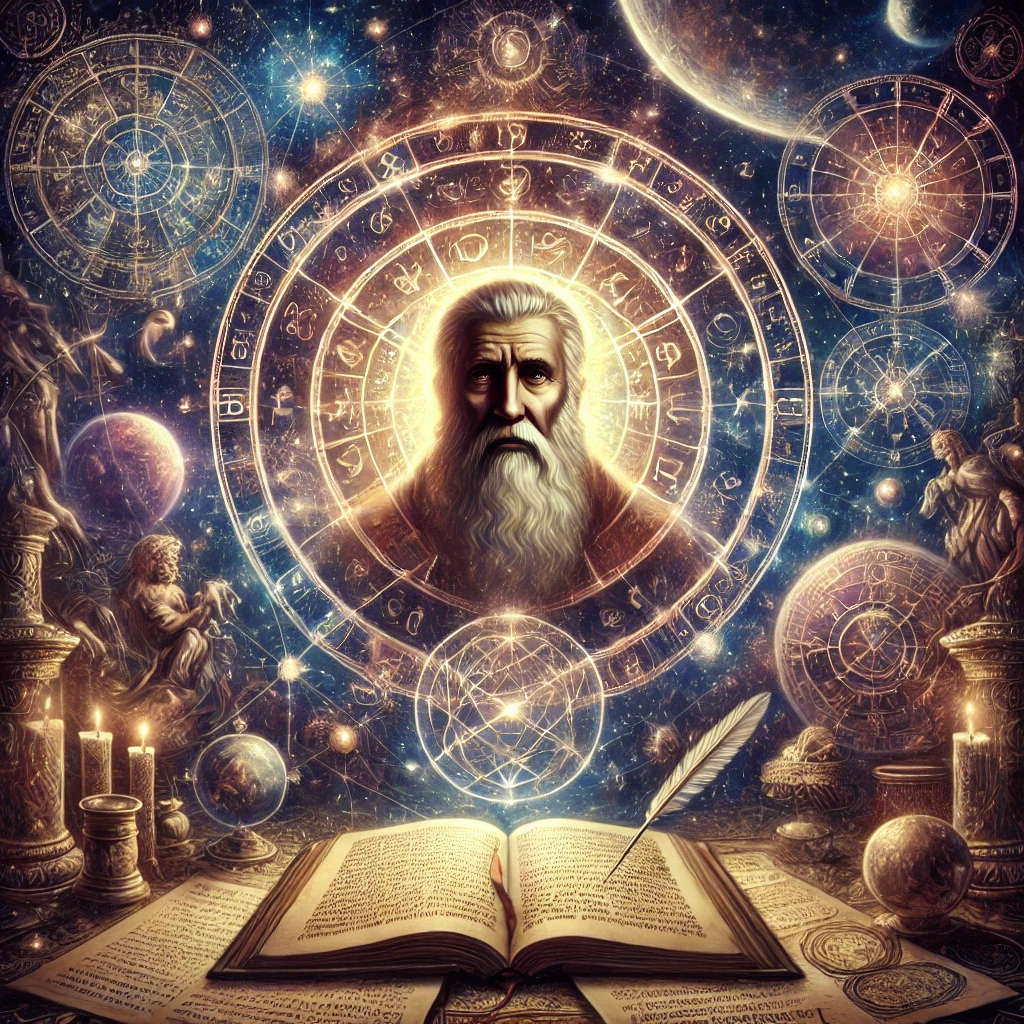Santos Bonacci is a polarizing figure in the world of esoteric knowledge. His work bridges astrology, theology, syncretism, and fringe cosmology. He has built a following by blending ancient wisdom with modern conspiracy theories. Whether you view him as a visionary or a pseudoscientist, his influence is undeniable.
Who is Santos Bonacci?
Bonacci is an Australian researcher, musician, and lecturer. He first gained recognition as a classical guitarist before pivoting toward esoteric teachings. His studies focus on syncretism—the idea that all religious, philosophical, and scientific traditions stem from a common source. Over the years, his work has grown increasingly controversial.
He claims to decode the secrets of the universe using astrology, etymology, and biblical allegory. His lectures often challenge mainstream historical narratives. Critics argue that he misinterprets sources and promotes pseudo-historical claims. Despite this, his audience continues to grow, drawn to his alternative worldview.
The Core of Syncretism
Syncretism, according to Bonacci, is the key to understanding reality. He believes that all religious traditions contain fragments of the same universal truth. His work aims to reconcile these fragments into a unified system of knowledge. This approach is both intriguing and contentious.
He often references the Hermetic maxim, “As above, so below.” This phrase suggests a fundamental correspondence between celestial movements and earthly events. Bonacci argues that ancient knowledge has been deliberately hidden or distorted. He sees himself as restoring lost wisdom to modern society.
Astrotheology and the Zodiac Connection
A major component of Bonacci’s teachings is astrotheology. This is the study of how religious myths and deities correspond to celestial phenomena. He claims that major religious figures, including Jesus, are allegories for the Sun and the zodiac cycle. This idea is not new, but Bonacci presents it with a unique intensity.
He meticulously links biblical events to astrological patterns. For example, he associates the twelve apostles with the twelve zodiac signs. He also claims that major religious holidays align with solar movements. While this perspective fascinates some, it alienates those with a traditional religious background.
The Influence of Pythagoras and Ancient Knowledge
Bonacci frequently references Pythagoras, the Greek philosopher and mathematician. He believes Pythagorean principles hold the key to understanding reality. Numerology, sacred geometry, and vibration theory are central to his framework. He suggests that numbers and frequencies shape the universe at a fundamental level.
He also draws from Egyptian, Hindu, and Mayan cosmology. His research often combines multiple ancient traditions into a single narrative. This broad approach is part of his appeal but also a source of criticism. Scholars argue that he oversimplifies complex traditions and ignores historical context.
The Legal Name Fraud Theory
Another controversial aspect of Bonacci’s work is his stance on legal identity. He promotes the idea that governments control people through their birth certificates and legal names. According to him, accepting a legal name makes a person a corporate entity rather than a sovereign being. This theory aligns with aspects of the “Freeman on the Land” movement.
He advises followers to renounce their legal names to reclaim their sovereignty. Legal experts dismiss these claims as baseless. Many who attempt to apply these theories face legal consequences. Despite this, Bonacci continues to advocate for this approach.
His Views on Science and the Flat Earth Debate
Bonacci has also ventured into the realm of alternative cosmology. He is a vocal proponent of the flat Earth theory. He claims that mainstream science is a deceptive institution designed to keep people ignorant. This stance has further distanced him from mainstream academic circles.
He argues that NASA and space agencies fabricate evidence of a heliocentric universe. His critics point to overwhelming scientific evidence against his claims. Even within alternative communities, his flat Earth beliefs are divisive. Yet, his unwavering conviction attracts those disillusioned with conventional science.
The Spiritual and Philosophical Implications
Beyond his controversial theories, Bonacci advocates for spiritual awakening. He encourages people to look beyond materialism and embrace higher consciousness. He often speaks about the pineal gland, chakras, and energy fields. These concepts align with Eastern mysticism and New Age spirituality.
His message emphasizes self-empowerment through knowledge. He believes that understanding esoteric wisdom can free individuals from societal control. While some find his teachings enlightening, others see them as misleading. Regardless, his work continues to inspire those seeking alternative perspectives.
The Impact of His Work
Bonacci has amassed a global following through social media and lectures. His YouTube videos have introduced many to syncretism and astrotheology. He has also sparked debates about the nature of reality and the legitimacy of mainstream narratives. His work remains a blend of philosophy, spirituality, and conspiracy.
He has also faced significant backlash. Critics accuse him of spreading misinformation and distorting history. Some former followers claim he presents speculative ideas as fact. Nevertheless, his teachings continue to resonate with those seeking hidden truths.
Final Thoughts: Visionary or Misguided Thinker?
Santos Bonacci occupies a unique space in the world of alternative knowledge. His synthesis of ancient wisdom and modern skepticism makes him both fascinating and controversial. He challenges conventional thinking, forcing his audience to question reality. However, his approach often lacks academic rigor and verifiable evidence.
His supporters view him as a modern-day mystic revealing hidden knowledge. His detractors see him as a pseudoscientist promoting unfounded theories. Love him or hate him, Bonacci has left a mark on esoteric discourse. His legacy will likely continue to spark debate for years to come.
Stay curious.




